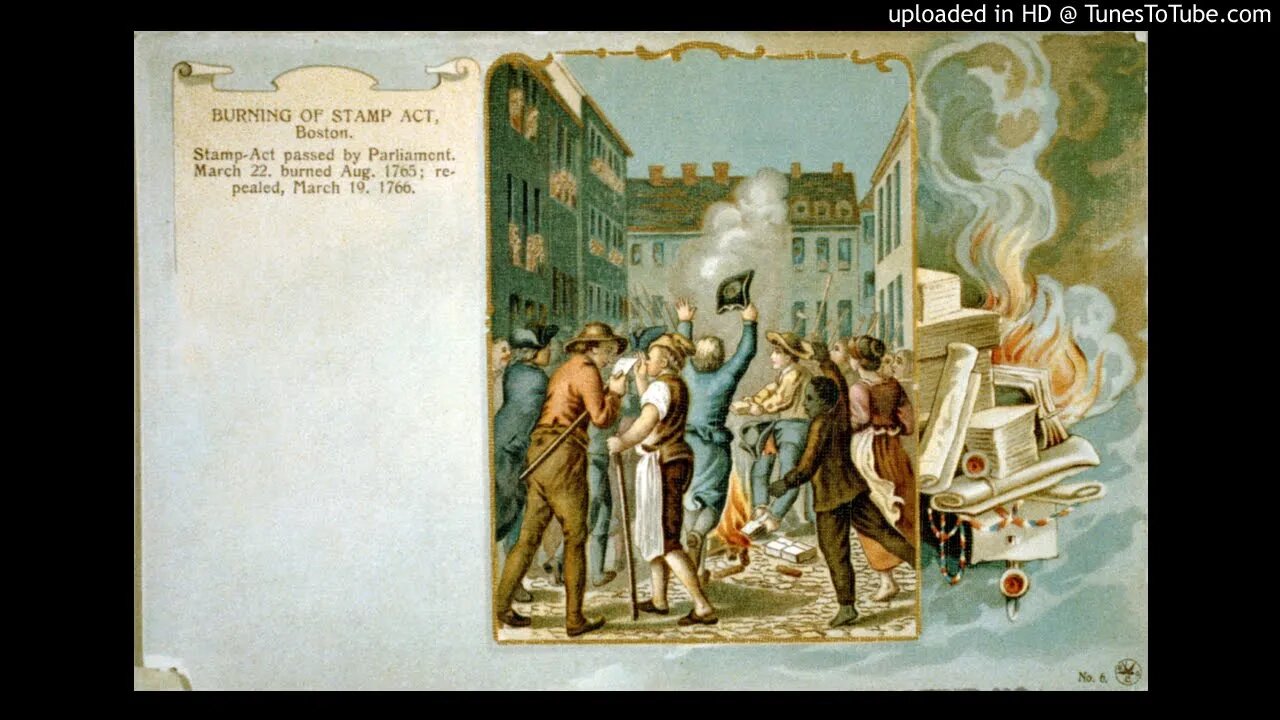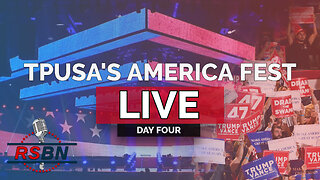Premium Only Content

The Stamp Act Rebellion - You Are There - Historical Drama Presented as Live Radio News Report
What if CBS Radio News were present at the Stamp Act Rebellion? Historical dramas presented as live radio news reports!
You Are There was an American historical educational television and radio series broadcast over the CBS Radio and CBS Television networks.
Created by Goodman Ace for CBS Radio, it blended history with modern technology, taking an entire network newsroom on a figurative time warp each week reporting the great events of the past. Reporters included John Charles Daly, Don Hollenbeck, and Richard C. Hottelet. The series was first heard on July 7, 1947, under the title CBS Is There. Its final broadcast was on March 19, 1950, under the title You Are There.
According to author/historian Martin Grams, actor Canada Lee was a guest in episodes 32 and 60. Martin Gabel appeared in character in episode 82. The first 23 broadcasts went under the title CBS Is There and beginning with episode 24, the title changed to You Are There. A total of 90 episodes were broadcast. Only 75 episodes are known to exist in recorded form
The Stamp Act of 1765 (short title: Duties in American Colonies Act 1765; 5 George III, c. 12) was an Act of the Parliament of Great Britain which imposed a direct tax on the British colonies in America and required that many printed materials in the colonies be produced on stamped paper produced in London, carrying an embossed revenue stamp.[1][2] Printed materials included legal documents, magazines, playing cards, newspapers, and many other types of paper used throughout the colonies, and it had to be paid in British currency, not in colonial paper money.
The purpose of the tax was to pay for British military troops stationed in the American colonies after the French and Indian War, but the colonists had never feared a French invasion to begin with, and they contended that they had already paid their share of the war expenses. They suggested that it was actually a matter of British patronage to surplus British officers and career soldiers who should be paid by London.
The Stamp Act was very unpopular among colonists. A majority considered it a violation of their rights as Englishmen to be taxed without their consent—consent that only the colonial legislatures could grant. Their slogan was "No taxation without representation." Colonial assemblies sent petitions and protests, and the Stamp Act Congress held in New York City was the first significant joint colonial response to any British measure when it petitioned Parliament and the King.
One member of the British Parliament argued that the American colonists were no different from the 90-percent of Great Britain who did not own property and thus could not vote, but who were nevertheless "virtually" represented by land-owning electors and representatives who had common interests with them.[5] An American attorney refuted this by pointing out that the relations between the Americans and the English electors were "a knot too infirm to be relied on" for proper representation, "virtual" or otherwise. Local protest groups established Committees of Correspondence which created a loose coalition from New England to Maryland. Protests and demonstrations increased, often initiated by the Sons of Liberty and occasionally involving hanging of effigies. Very soon, all stamp tax distributors were intimidated into resigning their commissions, and the tax was never effectively collected.
Opposition to the Stamp Act was not limited to the colonies. British merchants and manufacturers pressured Parliament because their exports to the colonies were threatened by boycotts. The Act was repealed on 18 March 1766 as a matter of expedience, but Parliament affirmed its power to legislate for the colonies "in all cases whatsoever" by also passing the Declaratory Act. A series of new taxes and regulations then ensued—likewise opposed by the Americans. The episode played a major role in defining the 27 colonial grievances that were clearly stated within the text of the Indictment of George III section of the United States Declaration of Independence, enabling the organized colonial resistance which led to the American Revolution in 1775. (Wikipedia)
-
 18:12:15
18:12:15
Chesterton Radio
1 year ago $4.63 earnedChesterton Radio Live - Mystery Drama Adventure - Chuck the TV!
43.6K -
 LIVE
LIVE
Right Side Broadcasting Network
10 days agoLIVE REPLAY: President Donald J. Trump Keynotes TPUSA’s AmFest 2024 Conference - 12/22/24
5,097 watching -
 4:31
4:31
CoachTY
1 day ago $26.84 earnedCOINBASE AND DESCI !!!!
158K11 -
 10:02
10:02
MichaelBisping
23 hours agoBISPING: "Was FURY ROBBED?!" | Oleksandr Usyk vs Tyson Fury 2 INSTANT REACTION
84.1K13 -
 8:08
8:08
Guns & Gadgets 2nd Amendment News
2 days ago16 States Join Forces To Sue Firearm Manufacturers Out of Business - 1st Target = GLOCK
110K87 -
 10:17
10:17
Dermatologist Dr. Dustin Portela
2 days ago $18.26 earnedOlay Cleansing Melts: Dermatologist's Honest Review
148K14 -
 1:02:20
1:02:20
Trumpet Daily
2 days ago $45.83 earnedObama’s Fake World Comes Crashing Down - Trumpet Daily | Dec. 20, 2024
103K67 -
 6:29
6:29
BIG NEM
1 day agoCultivating God Mode: Ancient Taoist NoFap Practices
76.6K20 -
 30:53
30:53
Uncommon Sense In Current Times
2 days ago $11.44 earned"Pardon or Peril? How Biden’s Clemency Actions Could Backfire"
89.2K7 -
 40:01
40:01
CarlCrusher
1 day agoSkinwalker Encounters in the Haunted Canyons of Magic Mesa - ep 4
81.9K10